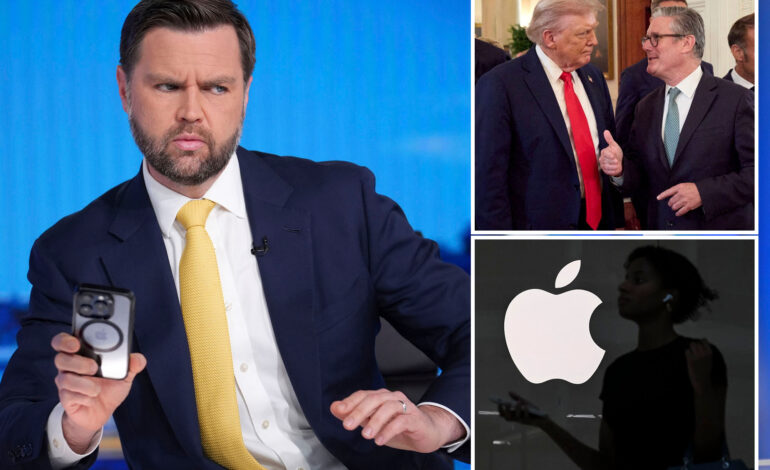Vance Negotiates UK Drop of Demand for Apple User Data Access

In a significant diplomatic development, Vice President JD Vance has successfully negotiated with the United Kingdom to withdraw its demand for access to Apple user data. This decision comes after extensive discussions between Vance and British officials, aimed at addressing concerns over privacy and civil liberties for American citizens.
Details of the Negotiation
The UK government had initially sought a “backdoor” access to Apple’s cloud-storage data, which they argued would assist in investigations related to terrorism and other criminal activities. However, this request raised alarms among U.S. lawmakers, particularly within the Republican Party, who contended that such access could infringe on the privacy rights of individuals, including U.S. citizens.
According to a U.S. official, Vance played a crucial role in persuading British authorities to abandon their demand. His background in technology, notably his previous work in the tech sector in San Francisco under Peter Thiel, informed his approach and emphasized the importance of maintaining digital privacy.
“Over the past few months, I’ve been working closely with our partners in the UK, alongside President Trump and Vance to ensure Americans’ private data remains private and our Constitutional rights and civil liberties are protected,” stated Tulsi Gabbard, the U.S. Director of National Intelligence, on social media platform X. She highlighted that the UK’s agreement to drop the mandate is a victory for privacy advocates.
Broader Implications
The issue of data privacy has increasingly come to the forefront of international relations, particularly as advancements in technology shape security discussions. Vance has expressed concerns about the implications of artificial intelligence on personal relationships and has been vocal against social media censorship, particularly within European contexts.
During his first major speech abroad as Vice President at the Munich Security Conference in February 2024, Vance articulated that the primary threat to Europe was not external actors like Russia or China, but rather internal issues such as censorship. His remarks underscored the ongoing debate over balancing national security interests with the protection of individual rights.
As the landscape of technology and privacy continues to evolve, the resolution of this negotiation sets a precedent for future discussions regarding international data access and privacy rights. The successful outcome reflects a commitment to uphold civil liberties while navigating the complexities of global security.





